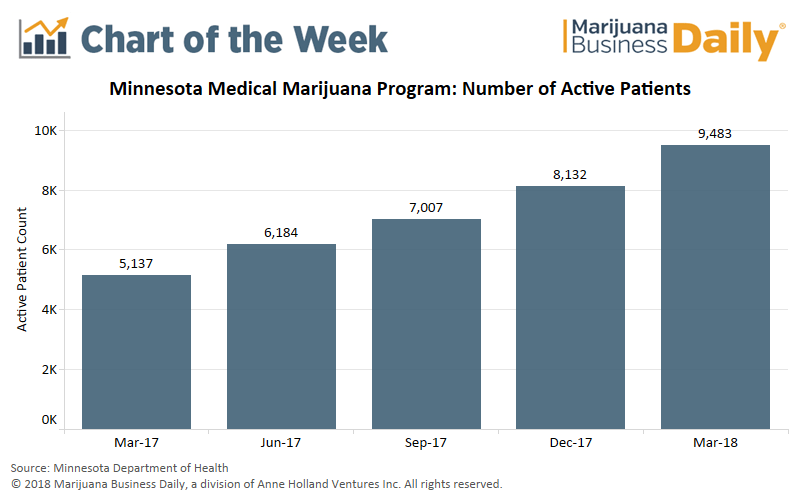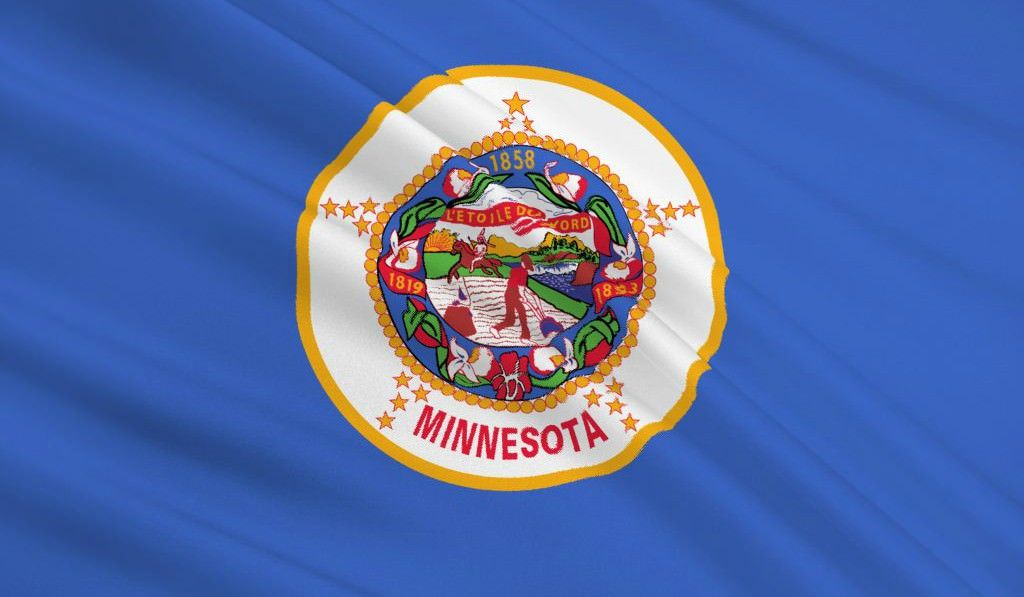Minnesota has been among the most restrictive medical marijuana markets in the United States for years, with only two licensed producers serving all registered MMJ patients, a ban on edibles and cannabis flower and a narrow qualifying conditions list.
Those factors add up to a small patient pool and questions about whether Minnesota’s two vertically integrated MMJ companies – LeafLine Labs and Minnesota Medical Solutions – can survive in the long term.
From March 2017 to March 2018, the state added over 4,000 MMJ patients to its rolls, an increase of 85%.
Although that’s still a small number of customers for a state the size of Minnesota – which has a population of over 5 million – it represents progress.
Last August, patients who suffer from post-traumatic stress disorder were allowed to buy MMJ. In 2016, intractable pain patients were added to the pool.
Those two additions accounted for thousands of patients signing up for the MMJ program, according to state data: 66% of registered patients report using MMJ to treat intractable pain, and another 10% use it for PTSD.
More changes are on the way. Effective in July, autism spectrum disorders and sleep apnea will be added to the qualifying condition list for MMJ.
However, it remains an open question whether Minnesota’s two MMJ producers can become profitable in a program that remains relatively restrictive.
As of March 2017, the companies had lost a combined $11 million in their first two years of operations.
The patient count increase should help alleviate the red ink. But whether it’ll be too little too late remains to be seen.
For the companies to survive, the state will likely have to continue tweaking the program to broaden access and bolster the patient count.
If it doesn’t, Minnesota could become a cautionary tale for future states that legalize MMJ and hope to throw its operational difficulties onto private industry’s shoulders.
Eli McVey can be reached at elim@mjbizdaily.com
John Schroyer can be reached at johns@mjbizdaily.com





